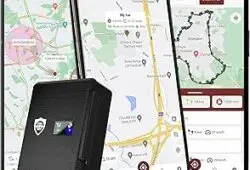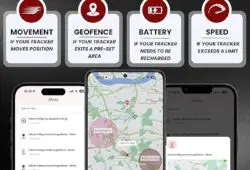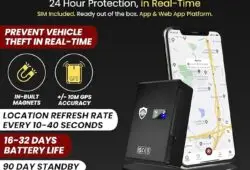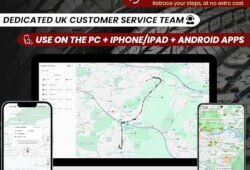Understanding Your Vehicle’s Basics
Before embarking on a journey, it is crucial to familiarize yourself with the basic functionalities and controls of your vehicle. Understanding the essential components can significantly enhance your driving experience and ensure safe travels. Start with your dashboard indicators, which provide vital information about your car’s status. These indicators can alert you to potential issues, such as low fuel, engine temperature, or tire pressure. Knowing what each symbol means allows you to make informed decisions while driving, potentially preventing more significant issues down the road.
The gear system is another critical aspect of your vehicle that warrants attention. Understanding how to operate the gear shift, especially in automatic and manual transmissions, can influence your driving efficiency and comfort. If you’re unfamiliar with how to engage different gears, or how to operate features such as cruise control or engine braking, this knowledge is essential ahead of any trip. Specifically, ensure that you know how to shift smoothly between gears, as this will contribute to better fuel economy and vehicle performance.
Basic troubleshooting skills are also beneficial before a trip. Familiarizing yourself with common issues, such as what to do in case of a flat tire or a dead battery, is essential. Having a basic toolkit and knowing how to use it can save you time and stress. Additionally, consider exploring car manuals or mobile apps that provide guidance and support. Many manufacturers offer online resources or smartphone applications that help you understand your vehicle better. These platforms can provide step-by-step tutorials, maintenance reminders, and emergency assistance tips. With these tools at your disposal, you are better equipped to handle any surprises that may arise while on the road, ensuring a smooth and enjoyable trip.
Essential Checks for Vehicle Maintenance
Before embarking on a journey with your car, it is essential to perform a comprehensive vehicle maintenance check to ensure both safety and peak performance. The first task should be to check the fluid levels within your vehicle. This includes essential fluids such as motor oil, coolant, brake fluid, and windshield washer fluid. Maintaining appropriate oil levels is crucial for engine lubrication and performance, while ensuring adequate coolant can prevent the engine from overheating. Additionally, checking the brake fluid is vital for safe braking capability, and topped-off washer fluid helps maintain visibility during your drive.
Next, tire condition plays a significant role in the safety and efficiency of your vehicle. Checking tire pressure is essential, as properly inflated tires can enhance fuel efficiency and improve handling. It is advisable to use a reliable tire pressure gauge to ensure each tire is inflated to the manufacturer’s recommended levels. Furthermore, examining tread depth is equally important, as insufficient tread can lead to reduced grip and increased risk of hydroplaning. If the tread appears worn or uneven, it may be time to replace the tires to ensure stable driving conditions.
Another critical aspect of vehicle maintenance is assessing the health of your battery. A reliable battery is essential for starting your vehicle and powering electrical systems. To evaluate battery condition, use a battery tester to check the voltage and overall health. Cleaning any corrosion from battery terminals can also help ensure a solid connection. If your battery is several years old, it may be prudent to consult a professional about potential replacement options.
Utilizing high-quality maintenance products, such as premium motor oil and trusted tire pressure gauges, can further enhance the effectiveness of these checks. By taking the time to carry out these essential vehicle maintenance tasks, you can travel with greater peace of mind and enjoy a smooth trip.
Safety Equipment and Emergency Supplies
When preparing for a trip with your car, ensuring you have the necessary safety equipment and emergency supplies can significantly enhance your travel experience and peace of mind. A well-equipped vehicle can be the difference between a minor inconvenience and a major disruption during your journey. Below are essential items every traveler should consider carrying.
First and foremost, a well-stocked first aid kit is crucial. It should include band-aids, antiseptic wipes, gauze pads, adhesive tape, and other basic medical supplies. Regularly check the kit to ensure that items are not expired and are in adequate supply. Having a first aid kit can help manage minor injuries effectively when on the road.
Emergency flares or reflective triangles are vital components to carry for roadside emergencies. These assist in alerting other drivers to your vehicle’s presence, ensuring your safety while you address any issues with your car. It is recommended to familiarize yourself with how to properly set up these devices before an incident occurs.
A portable jump starter is another indispensable item, especially for those who are prone to battery issues. This device allows you to start your vehicle without needing assistance from another car or individual. Many high-rated models are compact and user-friendly, making them an excellent choice for emergency situations.
Additionally, a basic toolkit that includes screwdrivers, pliers, a wrench set, and duct tape can help you deal with minor automotive repairs. Ensuring that your toolkit is well-organized and accessible will allow you to react promptly if mechanical issues arise during your travels. By preparing your vehicle with these safety and emergency supplies, you will not only safeguard your journey but also enhance your overall travel experience.
Planning Your Route and Checking Travel Conditions
Before embarking on a trip with your car, careful planning of your route and checking travel conditions is essential for ensuring a smooth and enjoyable journey. Utilizing modern navigation tools can greatly enhance your travel experience and minimize potential disruptions.
The use of GPS systems is a primary method for route planning. These devices provide real-time updates regarding traffic conditions, alternative routes, and estimated arrival times, guiding you toward your destination efficiently. In addition to traditional GPS units, mobile applications such as Google Maps and Waze offer valuable features. These platforms can alert you to road closures, accidents, and construction zones, allowing you to make informed decisions while on the road.
Weather conditions also play a critical role in your travel plans. Before you set off, it is prudent to consult reliable weather apps to check for any adverse conditions that may affect your journey. Rain, snow, or extreme temperatures can create hazardous driving situations, prompting the need for adjusted travel times or alternative routes. Stay informed about the weather not only for your departure area but also for your destination and any stops along the way.
Additionally, mapping resources can provide insights into scenic routes or shortcuts that may enhance your trip. Online platforms and navigation applications can help identify points of interest, necessary pit stops, and areas where you might want to explore. By integrating these tools into your travel preparations, you can safeguard against unexpected delays and enhance your driving experience.
In conclusion, planning your route and checking travel conditions is paramount when traveling by car. By leveraging technology and staying informed, you can ensure a safe and enjoyable trip, navigating effectively through any challenges that arise along the way.






